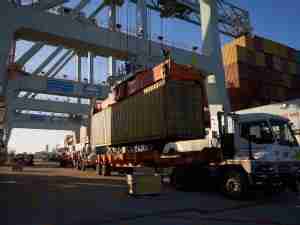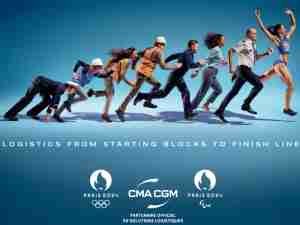Teamsters step up union drive at FedEx Freight, Con-way
By: Reuters | Nov 10 2014 at 08:46 PM | Intermodal | Logistics
After years of failed efforts, the Teamsters union has won a toehold in the trucking units of FedEx and Con-way and is targeting more facilities at both, potentially threatening what analysts see as a core competitive advantage for the companies.
The push by the Teamsters comes as a shortage of experienced drivers in the trucking industry is prompting companies to hike pay and offer improved working conditions.
The International Brotherhood Teamsters, which represents 1.4 million workers and is one of North America’s most powerful unions, has long tried to unionize workers at FedEx Corp and last month won votes to have union representation at two local FedEx Freight facilities out of three holding secret ballots.
Five ballots are scheduled at FedEx Freight facilities this month, with the next due on Nov. 12 in Newark, New Jersey.
With the exception of its pilots, FedEx’s workforce is non-unionized. While pay for its drivers is above that of some competitors, its larger rival United Parcel Service Inc pays its unionized drivers more, and FedEx has higher profit margins.
The Teamsters also won two out of four recent ballots at Con-way Freight, part of Con-way Inc, which according to industry estimates pays slightly more than FedEx but less than UPS.
The Teamsters declined to comment for this article.
The expanding U.S. economy has driven up freight demand at a time when older truckers are retiring and fewer new drivers are signing up. That shortage hurts long-haul truckers more than less-than-truckload operators like FedEx Freight and Con-way Freight, which fill up trucks with smaller orders from multiple customers. But it has forced up pay across the industry.
In April, FedEx announced pay increases for 19,000 FedEx Freight drivers at the unit’s 360 facilities, effective October.
“Drivers and dock workers currently have the ball in their court, and it may be there for a long while,” Cowen & Co analyst Jason Seidl said in an Oct. 30 client note, adding Con-way’s battle against the Teamsters could weigh on its results short term.
FedEx Freight accounted for $5.8 billion of FedEx’s $45.6 billion fiscal 2014 revenue, while Con-way Freight contributed $3.5 billion of Con-way’s $5.5 billion revenue in 2013.
Both companies are fighting the unionization effort. After the Teamsters scored wins against Con-way, one in September and one in October, the company filed objections to the ballots with the National Labor Relations Board claiming the union intimidated workers, and emphasizes the union’s victories affect only two out of around 300 facilities.
“We don’t believe we need a third party between ourselves and our employees,” Con-way Chief Executive Officer Doug Stotlar told analysts in an Oct. 31 conference call.
FedEx has said it is weighing an appeal with the NLRB against the most recent vote in favor of union representation on Oct. 31 at a facility in New Jersey.
While gains have so far been small - there are only about 150 drivers at the FedEx Freight facilities where the Teamsters won ballots - the union said on its website other campaigns were under way.
“The aim here appears to be to unionize an entire sector,” said Dan Cornfield, a Vanderbilt University labor analyst.
But it could be an uphill struggle.
According to data compiled by industry expert SJ Consulting Group Inc, as of July this year Con-way Freight drivers made $24.75 an hour, while FedEx Freight drivers earned $24.40. Among unionized companies, wages at ArcBest Corp were $23.17 and $21.10 at YRC Worldwide Inc.
Unionized truckers at UPS Freight make an estimated $26.65.
SJ Consulting founder Satish Jindel said the Teamsters will likely face difficulty persuading FedEx Freight and Con-way Freight drivers that collective bargaining is a boon when two major unionized carriers pay less.
“FedEx Freight and Con-way are seasoned campaigners, as they have been fighting unionization for decades,” he said. “They are not going to be easy targets for the Teamsters.” (Reuters)






